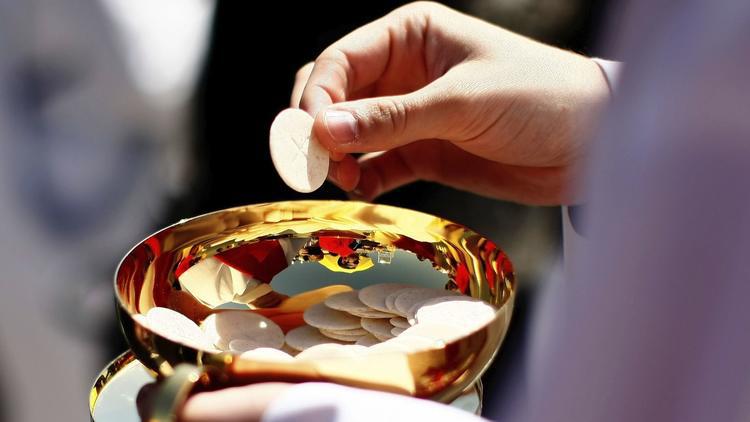|
Pennsylvania Supreme Court says priest sex abuse grand jury report needs more review
By Tim Darragh
[with video] The Pennsylvania Supreme Court on Monday said it stopped the planned release of a report investigating decades of child sexual abuse in six Catholic dioceses, including the Diocese of Allentown, because “many” people raised complaints that it would unfairly tarnish their reputations. The unsigned opinion says most, if not all, of the petitioners are people named in the report who are alleging that it “unconstitutionally infringes on their right to reputation and denies them due process.” Each of the six dioceses last week issued statements saying they had not taken legal steps to block the report. Under the grand jury law, individuals who are not charged with a crime but about whom the report is critical may be allowed to see it and issue a reply to be incorporated in the final product. The court did not lay out a timetable for release of the report, which it acknowledged is of great public interest. Around 1.7 million Catholics are in the six dioceses under investigation, with up to 250,000 in the Allentown Diocese. The petitioners’ assertions get at the heart of the investigative grand jury process in Pennsylvania, which operates in secrecy and is not a forum for targets of the investigation to speak. Some of the petitioners, the Supreme Court order says, “were not aware of, or allowed to appear at, the proceedings before the grand jury.” As the report developed, unknown numbers of individuals named in the report sought a hearing before the supervising judge, Cambria County Judge Norman A. Krumenacker III. In a rare public filing, Krumenacker this month denied the hearings, saying earlier rulings held that because the grand jury proceedings are investigative, they do not violate individuals’ due process rights. Permitting those individuals to testify or present evidence on their own behalf “would disrupt the investigative function while affording little additional safeguards,” he wrote. His order said that besides priests and bishops, the report would identify public officials and community leaders who may have had a role in abetting child abuse. Krumenacker invited bishops of the six dioceses — Allentown, Scranton, Harrisburg, Greensburg, Pittsburgh and Erie — to testify. Bishop Lawrence Persico of Erie was the only one to accept. The others filed written responses. Krumenacker gave the individuals named in the report until June 22 to reply, but said he might authorize release of the report the next day. The Supreme Court on June 20 issued a stay of the release of the report. The stay angered abuse victims and their advocates, who had been hoping the report would be issued before the end of this month. The Pennsylvania Office of Victim Advocate tweeted that victims have waited long enough for the report’s publication. “The report must be released so their voices can be heard,” it said. Pennsylvania Attorney General Josh Shapiro’s office, which led the grand jury investigation from 2016 until this past April and then oversaw the report, said it would not object to a brief stay of a few days, according to the new court order. Shapiro’s spokesman, Joe Grace, said in a statement Monday that the petitioners are seeking to “permanently suppress” the voices of victims of “widespread” sex abuse in the church. “The Office of Attorney General stands in total opposition to that position and is fighting with all of its legal ability to ensure the publication of this report,” Grace said. “While we did not oppose giving the court a matter of days to conduct a careful review and promptly rule on these motions, that time is quickly expiring.” The order says the possibility that Krumenacker might release the report the day after the response deadline provides “inadequate time for essential judicial review.” It also says the state’s highest court cannot properly judge the petitions for review because it hasn’t yet seen the entire report. According to the order, the court will revisit the stay in the proceedings after resolving the issue over the petitions for review, or whether the stay remains warranted. Shapiro’s office can withdraw its acquiescence to the stay and file its own objection to blocking release of the report, the order says. The investigation was undertaken after another grand jury report looking only at the Diocese of Altoona-Johnstown in 2016 identified around 50 people who either committed alleged abuse or covered it up. Hundreds of victims were involved, it said. The remaining Archdiocese of Philadelphia had already been the subject of highly critical investigations. The current investigation is expected to name many more alleged perpetrators and victims, in what could be the largest accounting of any report of abuse in the United States. Contact: tdarragh@mcall.com
|
.
Any original material on these pages is copyright © BishopAccountability.org 2004. Reproduce freely with attribution.
